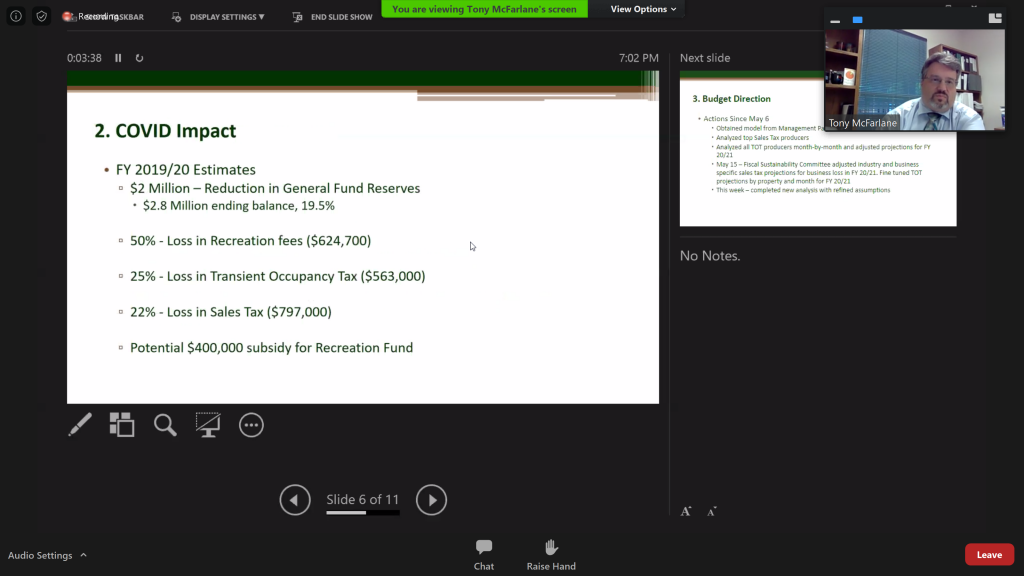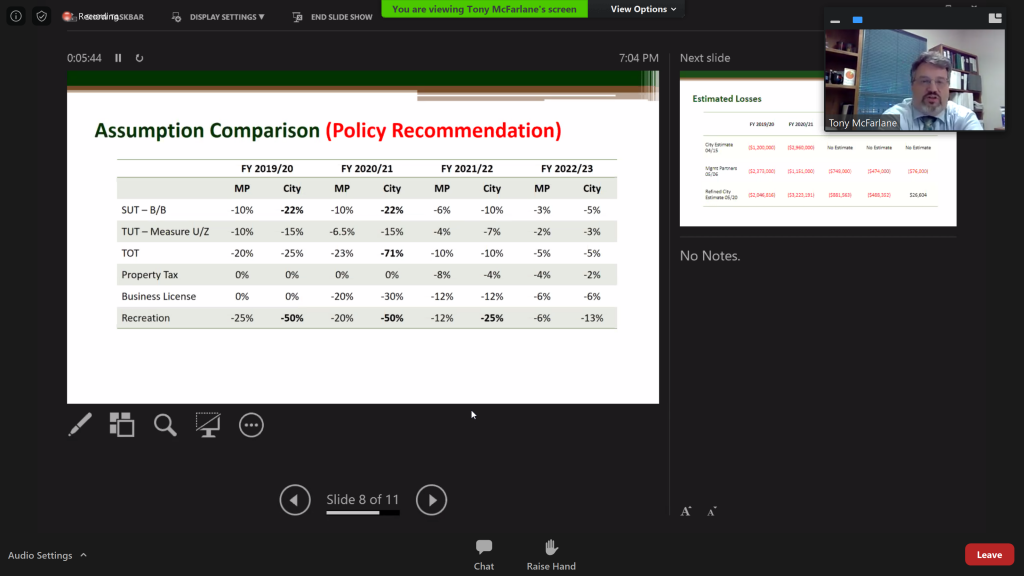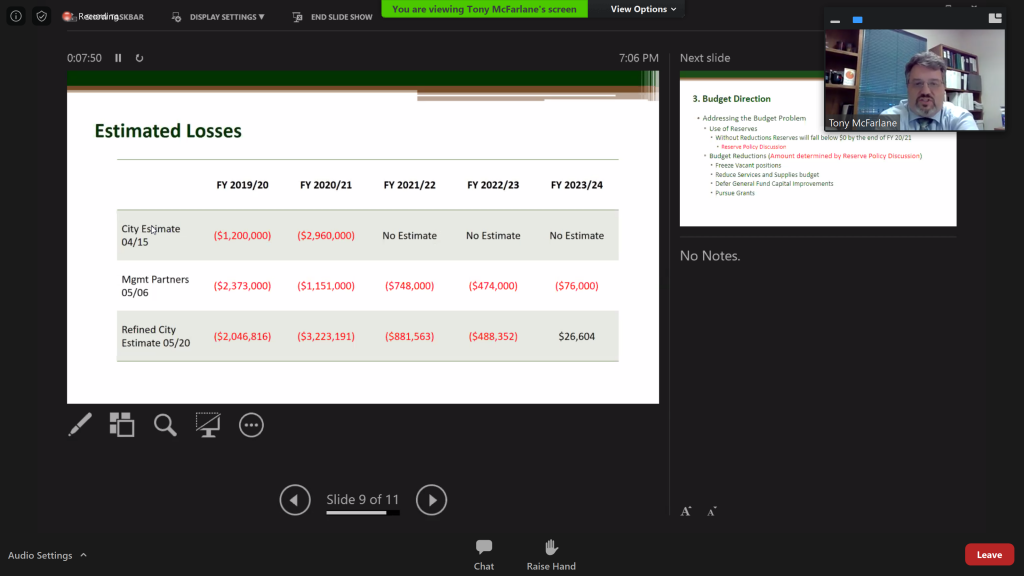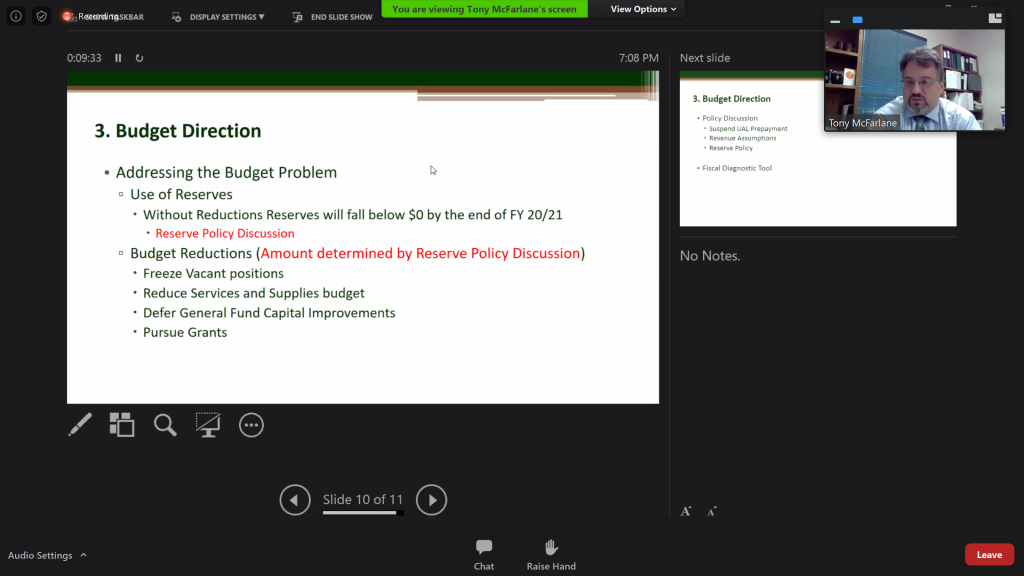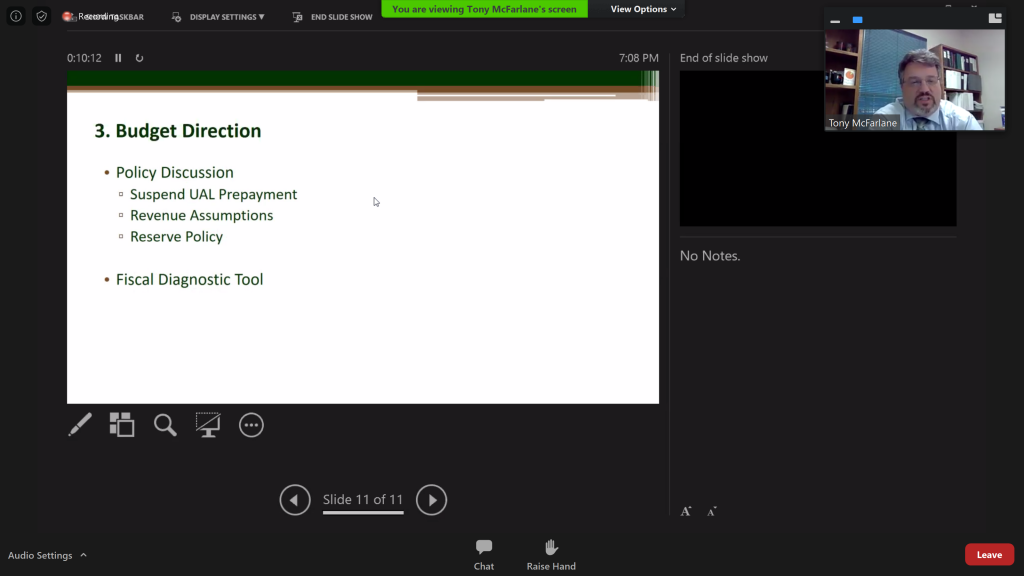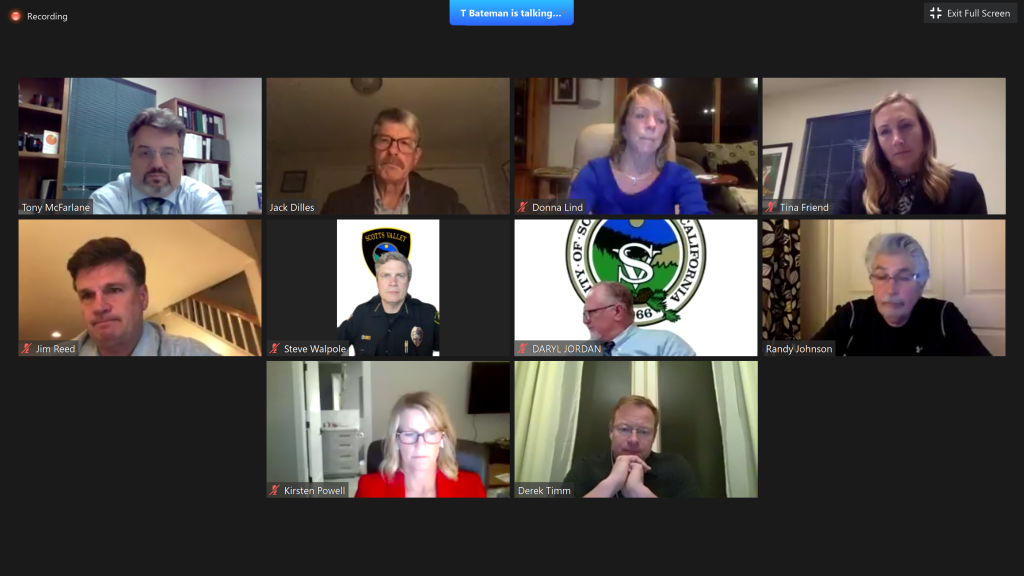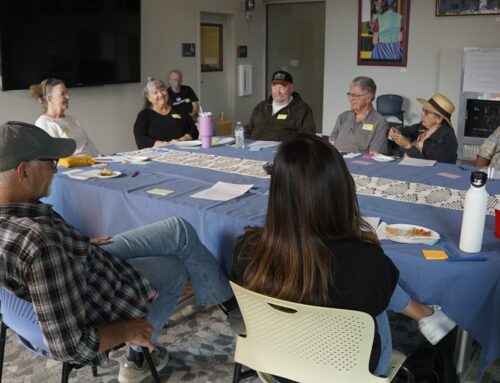Santa Cruz Local offers its city council recaps free as a public service. But journalism can be expensive — and deep, time-consuming, investigative journalism is the most expensive of all.
Santa Cruz Local depends on memberships from people like you to make sure vital information can be available to all. Can we count on your help?
SCOTTS VALLEY >> In light of steep revenue losses due to COVID-19 shutdowns, the Scotts Valley City Council will face difficult choices in the next few months to maintain the city’s already lean staff and services.
The city’s finance department projects $2 million less revenue by June and $4.5 million less revenue in the next three fiscal years. Those updated estimates, shared at a city council meeting Tuesday, were bleaker than those shared by a consultant group at the council’s May 6 meeting.
In recent years, the city has operated with a revenue of about $12 million.
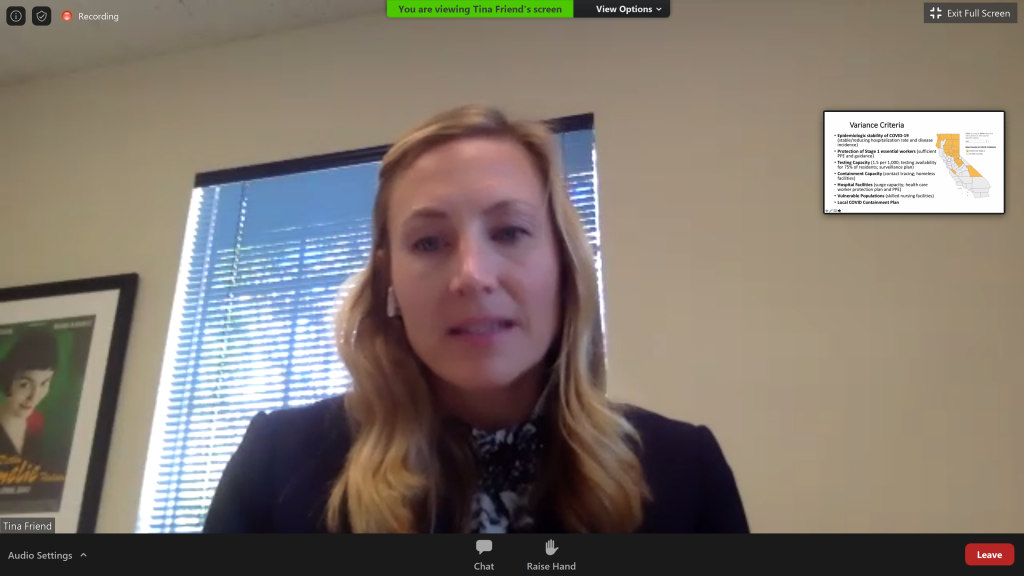
“I just underscore uncertainty,” said Scotts Valley City Manager Tina Friend. “We just don’t know and no one knows. So we just have to brace ourselves to be in ongoing budget conversations that’s going to have to continually assess where we are and maybe have to course correct.”
About half of city revenue comes from sales tax and hotel tax. Those sources are hard hit by the COVID shutdowns. Also, revenue from recreation fees is projected to drop by 50% this year, representing a loss of about $625,000.
The city council is expected to discuss a draft budget at its June 3 meeting with final adoption June 17.
The city council is expected to freeze hiring, reduce budgets for services and supplies, defer capital improvements and seek federal and state grants.
The council also will decide whether to cut services and employees and how much it’s willing to draw down reserves. The city’s reserves are enough to cover about two months of expenses, according to the budget.
The council also will decide whether to pre-pay its Unfunded Accrued Liability, a pension-related obligation, to CalPERS. The council has done this before and the move can save money in the long run.
No money for nonprofits
Tuesday, the city council already faced a tough decision with a consensus not to grant money to local nonprofit groups. Eighteen agencies, including Community Bridges, Grey Bears and Second Harvest Food Bank applied for a total of $66,000 in one-time funding. Scotts Valley and other cities make these types of grants each year to nonprofits that serve the community.
The council did not officially vote, but most members spoke in favor of saving money. The decision will be reflected in the draft budget next month.
“I believe pretty deeply in the agencies represented here tonight, but at the same time I have to think of our employees, our citizens, what we’re elected for,” said Mayor Randy Johnson. “And part of that is our core services: our police, the safety of our wastewater treatment plant, roads and infrastructure, our recreation department that is going to be looking for a subsidy of right around $400,000 that we don’t have.
“And if you really want to get scary, we know that not this year, not next year but most certainly two years out or maybe three years out, we’re going to have to take another PERS [pensions] hit that is going to be another devastating hit to our city.”
Councilmember Jack Dilles was the sole member who advocated for maintaining at least some funding. He said services like meal delivery and conflict resolution could be considered public safety.
Councilmember Donna Lind said, “It totally breaks my heart, but I don’t know where those funds come from.”
City fee hikes
In other news, the city council voted unanimously to increase city fees as scheduled. The council could have deferred the increase in light of COVID-19 economic hardship in the community.
Beginning July 20, fees will increase for city services such as building permits, tree removal permits, impounded car retrieval and planning application review. No one from the public commented.
Councilmember Jim Reed said the three-year phased-in approach to the fee hikes was reasonable.
“We’re in a whole new world and we need revenue in any way we can get to avoid cuts in core services,” Reed said.
Kara Meyberg Guzman is the CEO and co-founder of Santa Cruz Local. Prior to Santa Cruz Local, she served as the Santa Cruz Sentinel’s managing editor. She has a biology degree from Stanford University and lives in Santa Cruz.

